简体中文
繁體中文
English
Pусский
日本語
ภาษาไทย
Tiếng Việt
Bahasa Indonesia
Español
हिन्दी
Filippiiniläinen
Français
Deutsch
Português
Türkçe
한국어
العربية
Unlock the secret to avoiding these forex trading pitfalls and achieve success!
Abstract:In a previous article, we discussed how to uncover and avoid potential forex scams to protect your investments from devastating losses. However, such fraudulent activities are prevalent in the financial trading world. As an informed investor who understands the patterns of these scams, it is crucial to be extra vigilant and mindful of your every move. Where do these scams typically occur, and how do they unfold?
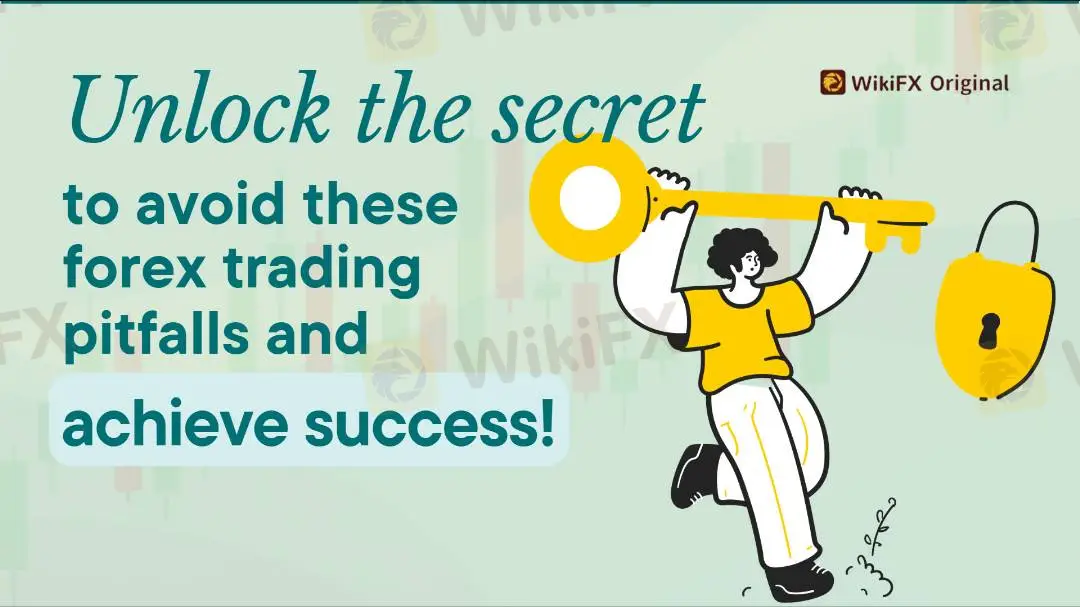
In a previous article, we discussed how to uncover and avoid potential forex scams to protect your investments from devastating losses. However, such fraudulent activities are prevalent in the financial trading world. As an informed investor who understands the patterns of these scams, it is crucial to be extra vigilant and mindful of your every move. Where do these scams typically occur, and how do they unfold?

Forex PAMM (Percentage Allocation Management Module) Scam
PAMM, or Percentage Allocation Management Module, is a great way to earn passive income from forex trading. It involves investors entrusting their funds to fund managers who then pool the funds together and invest collectively. In simple terms, it is fund management.
The returns are calculated based on your investment and the total pooled funds. The fund managers earn income through fees they set on the total profits. For example, they may charge 10% of the profits as compensation for their services. They may also add their own investments to the pooled funds to gain additional returns.
How do these scams occur?
The fraudulent brokers claim that their affiliated fund managers are qualified and experienced when in fact they are not.
They attempt to convince you with historical data and a large or exaggerated number of returns, which often exceed market standards.
They set management fees that are significantly higher than what most PAMM fund managers charge. Some even fail to provide an exit option or disclose information about penalties for early withdrawal.
Nothing attracts investors more than high returns, which is why many people become victims of investment scams
For example, in January this year, many professionals from Malaysia and abroad fell into a trap promising returns as high as 50%. Although the culprits were successfully arrested, there is no news on whether the investment funds can be recovered.
Similarly, in the last quarter of 2020, a fraudster was arrested in Singapore. He promised returns as high as 8%, and the victims invested over $1 million in his so-called forex trading scheme.
If something sounds too good to be true, it's best to think twice. It's likely a trap!
Signal Seller Scams
Signal sellers are traders who provide trading ideas, including entry and exit prices, stop loss, and target levels. They play a crucial role in social and copy trading.
However, it's important to avoid the following types of signal sellers:
Those who claim they can make you rich quickly.
Those who boast about identifying the best currency pairs for trading.
Those who provide unverified results.
Those who sell signals at exorbitant subscription fees.
Those who are only willing to sell signals if you sign up with their affiliated brokers.
Electronic Fraud
Automated trading systems allow you to trade on pre-programmed software. They utilize technical signals and other computational patterns to enter and exit trades without human intervention.
However, if you encounter the following, it's likely an electronic forex scam:
Guarantees of 100% profit or extremely high returns.
Unrealistic marketing claims.
Offers that are free or require only a low fee.
Claims of being able to develop your own strategy.
Claims of using a “set-it-and-forget-it” approach for long-term success.
Remember these points to protect yourself from electronic fraud.
False trading investments
Beware of fraudulent trading investments that promise high returns on initial investments in forex funds and unscrupulous brokers who trap unsuspecting investors. Scammers excel at promoting meticulously crafted marketing materials to entice you to put money into their pockets, only to disappear later.
Take, for example, GoldFx Investment, an investment company in Cambodia. They promised investors monthly returns of 5% to 10% through forex trading. With over 30,000 clients, their returns seemed irresistible.
Unfortunately, the company abruptly collapsed in April of this year due to embezzlement of $20 million by three former foreign board members. Reports indicate that GoldFx Investment was involved in at least $27 million. With $20 million gone, how can investors recover their investment?
Multi-level marketing (MLM) forex scams
Some pyramid schemes centered around currency trading require members to pay monthly subscription fees to access signals or educational information. Later on, members are encouraged to recruit more individuals in exchange for tiered commissions or rewards.
Since the focus of these schemes is on attracting new members or investors rather than trading, the company may collapse or incur significant losses if recruitment numbers dwindle.
Here's a notable example: Emas Fintech, a company involved in trading virtual currencies, promises daily profits ranging from 2% to 4% and monthly profits of 30%. Additionally, investors can earn commissions of up to 70% based on the scheme they invest in.
However, experts indicate that these enticing offers are fabricated, as brokers cannot guarantee high profits, especially when all trades are conducted online.
Forex trading is also exploited in Ponzi schemes. In fact, the alleged mastermind behind the Forex-3D Ponzi scheme was arrested in Bangkok after a year on the run. Apiruk Kothi claimed to have operated three forex companies with over 60,000 clients in Dubai, Hong Kong, and Singapore, but he failed to provide substantial evidence.
Spread manipulation
Similar situations occur when spreads are manipulated. Since the spread is essentially a trading commission, some brokers may take advantage of it. If the prices offered by these brokers differ significantly, such as by 7 pips or more, you should be suspicious of it.
Price manipulation scams
In addition to spread manipulation, some forex brokers deceive investors through negative slippage and stop hunting. The former involves entering or exiting trades at unfavorable prices, while the latter involves brokers canceling traders' stop-loss orders before the correct price is reached. This can result in trading losses.
Copy trading or social trading scams
Fraud can be involved in copy trading or social trading if the trader fails to provide verified results or real-time trade data. Blindly copying trades can lead to losses. It's important to thoroughly review the trading experts you are following.
Exercise caution when following traders on social media as well. Accountant Jonathan Reuben lost £17,000 due to suspected fraud by Gurvin Singh, who was believed to have gotten rich quickly through forex trading. Initially, Reuben saw his profits increase, likely because Singh was attempting to sell his strategy. However, a few months later, Reuben's funds plummeted, and he was unable to withdraw the remaining funds. Singh later disappeared.
In summary, it is evident from the mentioned forex scams that thorough research is key. By avoiding blind investments in the forex market and carefully reading the rules each time, you can protect yourself from falling into forex traps and incurring losses.
Therefore, it is essential to investigate the background of brokers and the legitimacy of the financial services they provide. If you engage in copy trading or social trading, verify the authenticity of the provided data. Lastly, always remember to read carefully.

Disclaimer:
The views in this article only represent the author's personal views, and do not constitute investment advice on this platform. This platform does not guarantee the accuracy, completeness and timeliness of the information in the article, and will not be liable for any loss caused by the use of or reliance on the information in the article.
Read more
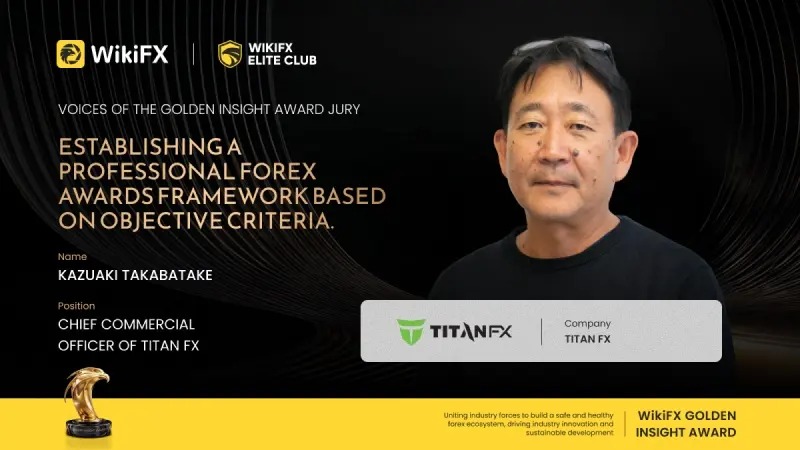
Voices of the Golden Insight Award Jury | Kazuaki Takabatake, CCO of Titan FX
WikiFX Golden Insight Award uniting industry forces to build a safe and healthy forex ecosystem, driving industry innovation and sustainable development, launches a new feature series — “Voices of the Golden Insight Awards Jury.” Through in-depth conversations with distinguished judges, this series explores the evolving landscape of the forex industry and the shared mission to promote innovation, ethics, and sustainability.
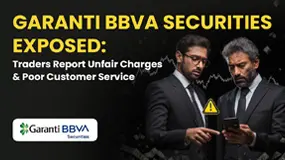
Garanti BBVA Securities Exposed: Traders Report Unfair Charges & Poor Customer Service
Have you been financially ruined through chargebacks allowed by Garanti BBVA Securities? Do you have to wait for hours to get your queries resolved by the broker’s customer support official? Did the same scenario prevail when you contact the officials in-person? Failed to close your account as Garanti BBVA Securities officials remained unresponsive to your calls? Many have expressed similar concerns while sharing the Garanti BBVA Securities review online. In this article, we have shared some complaints against the broker. Take a look!
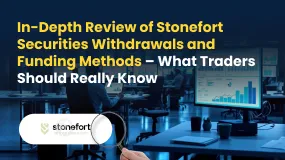
In-Depth Review of Stonefort Securities Withdrawals and Funding Methods – What Traders Should Really
For any experienced forex and CFD trader, the mechanics of moving capital are as critical as the trading strategy itself. The efficiency, security, and transparency of a broker's funding procedures form the bedrock of a trustworthy, long-term trading relationship. A broker can offer the tightest spreads and the most advanced platform, but if depositing funds is cumbersome or withdrawing profits is a battle, all other advantages become moot. This review provides a data-driven examination of Stonefort Securities withdrawals and funding methods. We will dissect the available information on payment options, processing times, associated costs, and the real-world user experience. Our analysis is anchored primarily in data from the global broker regulatory inquiry platform, WikiFX, supplemented by a critical look at publicly available information to provide a comprehensive and unbiased perspective for traders evaluating this broker.
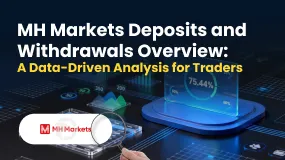
MH Markets Deposits and Withdrawals Overview: A Data-Driven Analysis for Traders
For any experienced trader, the integrity of a broker is not just measured by its spreads or platform stability, but by the efficiency and reliability of its financial plumbing. The ability to deposit and, more importantly, withdraw capital without friction is a cornerstone of trust. This review provides an in-depth, data-driven analysis of the MH Markets deposits and withdrawals overview, examining the entire fund management lifecycle—from funding methods and processing speeds to fees and potential obstacles. MH Markets, operating for 5-10 years under the name Mohicans Markets (Ltd), has established a global footprint. With a WikiFX score of 7.08/10, it positions itself as a multi-asset broker offering a range of account types and access to the popular MetaTrader platforms. However, for a discerning trader, the real test lies in the details of its payment systems and the security of their funds. This article dissects the MH Markets funding methods withdrawal experience, leveraging pr
WikiFX Broker
Latest News
GCash Rolls Out Virtual US Account to Cut Forex Fees for Filipinos
WikiFX's New Evaluation of ATM Capital LTD: Does its License Protect the Arab Investor?
How a Fake Moomoo Ad Led to the “New Dream Voyage 5” Scam
Is Axi Legit? A Data-Driven Analysis of Its Regulatory Standing and Trader Feedback
Trive Investigation: High Score, Hidden Risk - The Profit Paradox
In-Depth Uniglobe Markets Commission Fees and Spreads Analysis – What Traders Should Really Know
FXPesa Review: Are Traders Facing High Slippage, Fund Losses & Withdrawal Denials?
CMC Markets Australia Revenue Surges 34%, But High-Net-Worth Clients Face Tax Phishing Threat
The 350 Per Cent Promise That Cost Her RM604,000
INZO Commission Fees and Spreads Breakdown: A 2025 Data-Driven Analysis for Traders
Currency Calculator



